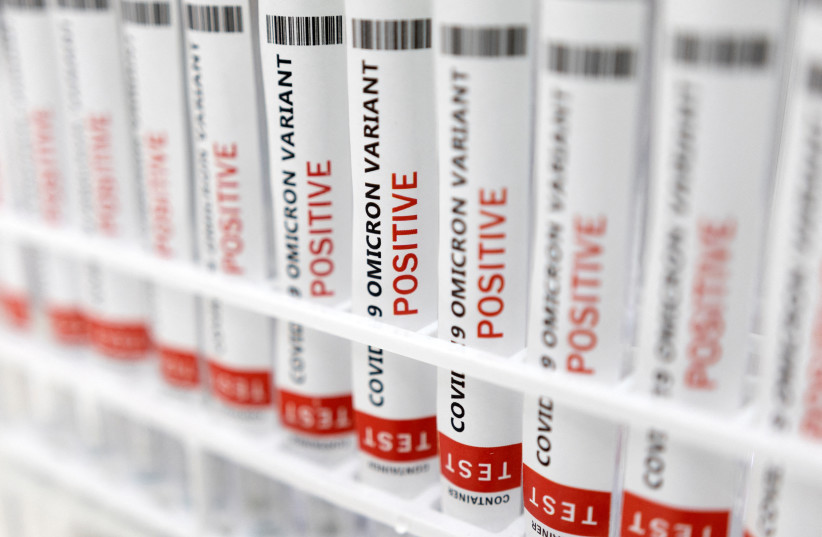With the threat of another COVID-19 wave in the winter combined with influenza and the previous shots from a year or two losing much of their efficacy, the new bivalent vaccine boosters produced by Pfizer and Moderna have been recommended, especially for those a high risk.
The virus that causes COVID-19 changes over time. The new boosters are suited to two COVID-19 strains of the Omicron virus variant that represents the vast majority of infections, according to the US Food and Drug Administration (FDA) in a recent statement. The bivalent vaccines contain two components, Pfizer’s new BioNTech booster targets both the original type of COVID-19 and the spike protein associated with the BA.1 subvariant of Omicron. Moderna’s bivalent vaccine candidate targets the newer Omicron subvariants of BA.4 and BA.5 alongside the original strain of COVID.
All the COVID-19 vaccines help protect against severe illness, hospitalization and death from the virus, according to the FDA. As the virus changes and your immunity naturally decreases over time, you may lose some of that protection.
“These vaccines work in the same way as the original COVID-19 vaccines and booster shots, and they are made using the same process. Because of that, there is no reason to think they will be any less safe. In addition, clinical studies on bivalent boosters so far show that people experience the same side effects as the monovalent vaccines,” according to the FDA, which authorized bivalent formulations of the Moderna and Pfizer vaccines for use as a single booster dose at least two months after completing primary or booster vaccination. The Pfizer bivalent vaccine, which predominates in Israel, is authorized for use as a single booster dose in individuals five years of age and older. The Moderna bivalent vaccine is approved for use as single booster dose in children from age six through adults.
“The COVID-19 vaccines, including boosters, continue to save countless lives and prevent the most serious outcomes (hospitalization and death) of COVID-19,” said FDA Commissioner Robert M. Califf, M.D. “As we head into fall and begin to spend more time indoors, we strongly encourage anyone who is eligible to consider receiving a booster dose with a bivalent COVID-19 vaccine to provide better protection against currently circulating variants.”

“These vaccines work in the same way as the original COVID-19 vaccines and booster shots, and they are made using the same process. Because of that, there is no reason to think they will be any less safe. In addition, clinical studies on bivalent boosters so far show that people experience the same side effects as the monovalent vaccines.”
US Food and Drug Association
The FDA said a single booster dose with an updated bivalent vaccine “provides broad protection against COVID-19 and is expected to provide better protection against COVID-19 caused by the currently circulating Omicron variant.” Side effects are generally mild and not different or stronger than those resulting in some patients from the previous shots, with the most frequent local adverse reaction in both groups being injection-site pain. Systemic reactions in a small minority of patients included fatigue, headache and joint pain.
Although Israeli researchers have not yet published a large study on the efficacy of the bivalent boosters, a study, published in the New England Journal of Medicine on 437 participants receiving a 50-microgram dose “elicited neutralizing antibody responses against Omicron … without evident safety concerns,” wrote the study authors led by Dr. Spyros Chalkias.
Vaccination fatigue
Although the Health Ministry has suspended its media campaign for getting the new booster (apparently due to public “vaccination fatigue,” there are queues for getting vaccinated. Maccabi Health Services, the second-largest health fund, reported that it was not making appointments now for anyone in Jerusalem and that people should wait at least until next week to schedule a shot.
Not enough time
Omicron boosters weren’t tested in humans before FDA approval “because there wasn’t enough time. Human trials of this specific Omicron booster only recently began in adults, and results aren’t expected until about November. But since the virus is changing so quickly, US federal officials said that data would be outdated by the time results could be delivered to the FDA.”
“The flu vaccine is reformulated each year, based only on animal studies for the same reason,” said Dr. Scott Roberts, a Yale Medicine infectious diseases physician. “An annual flu vaccine is updated based on the circulating strains of the flu, and unfortunately, we [the medical community] can’t wait on human data because it might not arrive until November or December, well after many of us have been infected.”
New studies have shown that in a population where half of people are already protected against a symptomatic COVID-19 infection through previous vaccination or infection, an updated vaccine booster bumped protection up to 90%, compared with 86% protection provided by an extra dose of the original vaccine.
The Health Ministry’s COVID-19 “dashboard” that is updated daily shows that 846 Israelis were officially diagnosed yesterday with the virus (but many more did not for testing), and 6,086 have an active infection. Eighty-three Israelis are in serious condition, 8.5% more that during the previous week. Israelis are still dying of COVID-19 complications, even though it has not made the headlines. Five lost their lives to it in the past week. A total of 11,728 Israelis have died of COVID-19 complications since the pandemic began.
